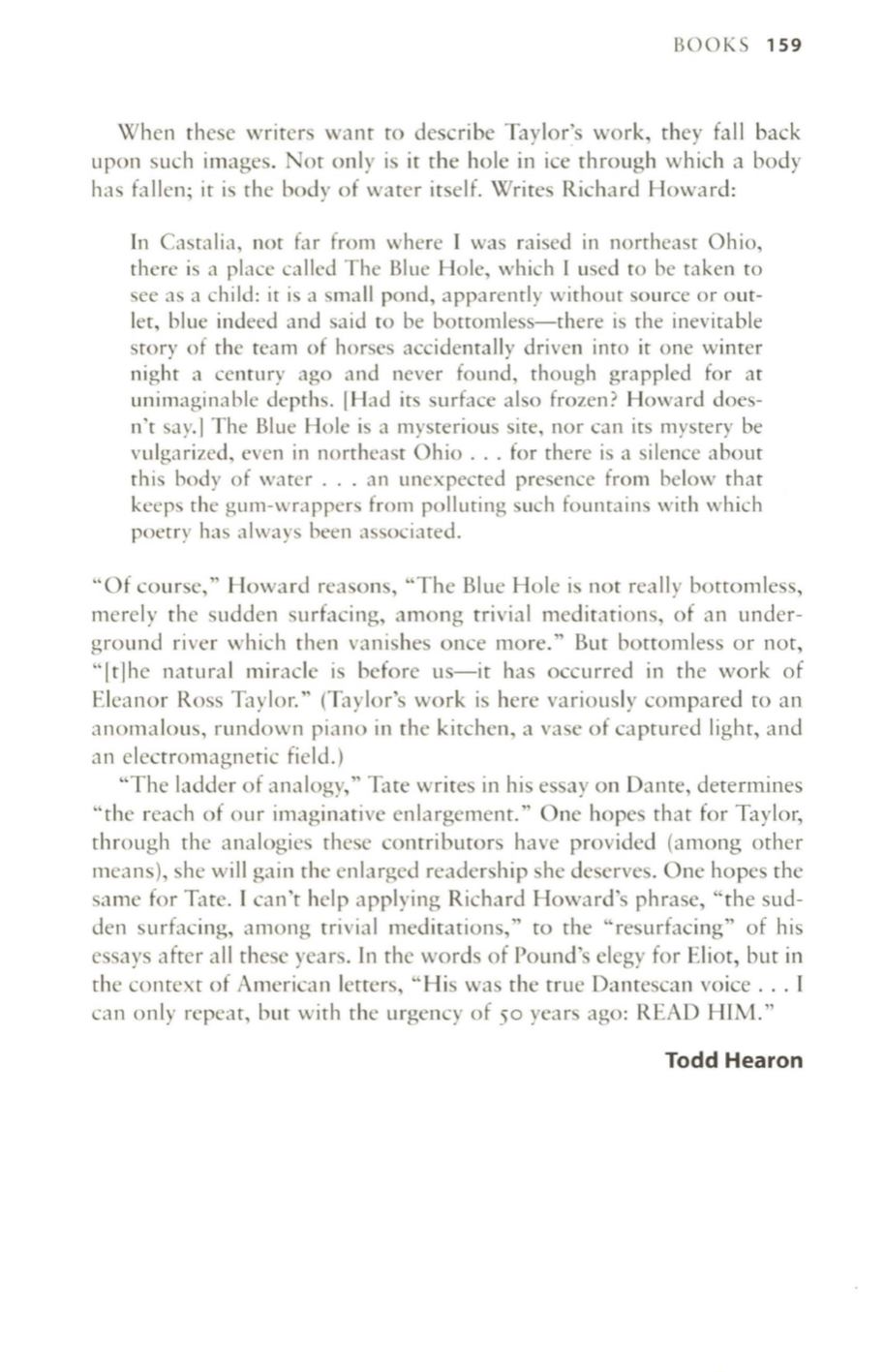
BOOKS
159
When these writers want to describe Taylor's work, they fall back
upon such images. Not only is it the hole in ice through which a body
has fallen; it is the body of water itself. Writes Richard Howard:
In
Castalia, not far from where
I
was raised in northeast Ohio,
there is a place called The Blue Hole, which
I
used to be taken
to
see as a child: it is a small pond, apparently without source or out–
let, blue indeed and said to be bottomless-there is the inevitable
story of the team of horses accidentally driven into it one winter
night a century ago and never found, though grappled for at
unimaginable depths. IHad its surface also frozen? Howard does–
n't say.1 The Blue Hole is a mysterious site, nor can its mystery be
vulgarized, even in northeast Ohio ... for there is a silence about
this body of water ... an unexpected presence from below that
keeps the gum-wrappers from polluting such fountains with which
poetry has always been associated.
"Of course," Howard reasons, "The Blue Hole is not really bottomless,
merely the sudden surfacing, among trivial meditations, of an under–
ground river which then vanishes once more." But bottomless or not,
"It]he natural miracle is before us-it has occurred in the work of
Eleanor Ross Taylor." (Taylor's work is here variously compared to an
anomalous, rundown piano in the kitchen, a vase of captured light, and
a n electromagnetic field.)
"The ladder of analogy," Tate writes in his essay on Dante, determines
"the reach of our imaginative enlargement." One hopes that for Taylor,
through the analogies these contributors have provided (among other
means), she will gain the enlarged readership she deserves. One hopes the
same for Tate.
I
can't help applying Richard Howard's phrase, "the sud–
den surfacing, among trivial meditations," to the "resurfacing" of his
essays after all these years.
In
the words of Pound's elegy for Eliot, but in
the context of American letters, "His was the true Dantescan voice ...
I
can only repeat, but with the urgency of
50
years ago: READ
HIM."
Todd Hearon


